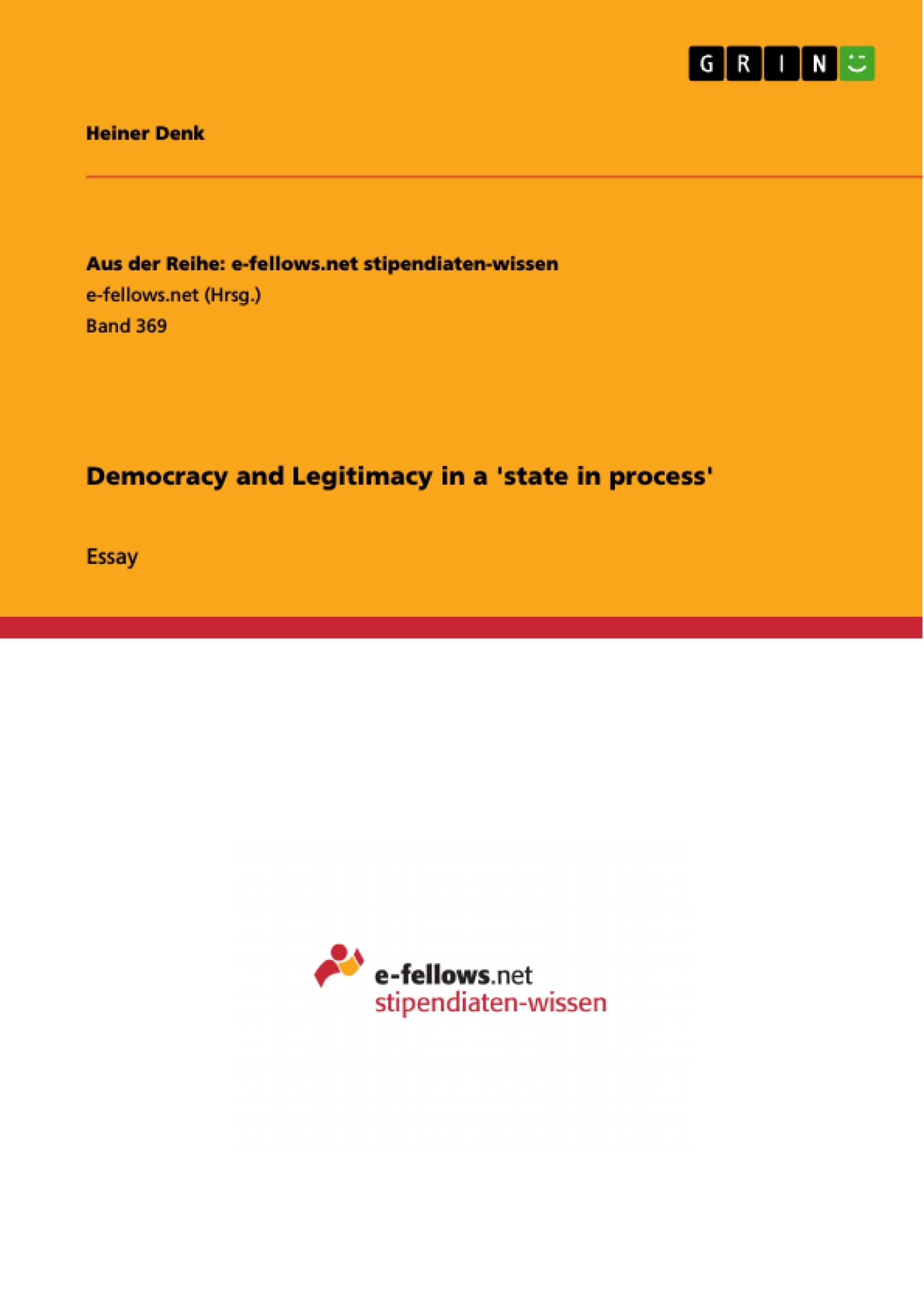Is it legitimate to talk about a “democratic deficit” in the European Union? From what perspectives and broader ideas about the European project does the consensus of the main German political partys derive? Is it true that the perceived democratic deficit in the European Union can be resolved by a strong European Parliament, in other words: Should the future democratic focus of the EU lay on this institution? These questions are discussed in the following essay.
Inhaltsverzeichnis (Table of Contents)
- Introduction
- Is there a democratic deficit in the European Union?
- The democratic deficit in the EU - a structural problem?
- The democratic deficit in the EU from a federal perspective
- The democratic deficit from an intergouvernemental perspective
Zielsetzung und Themenschwerpunkte (Objectives and Key Themes)
This essay examines the concept of a "democratic deficit" in the European Union, analyzing the consensus among German political parties that such a deficit exists and requires resolution. It explores the arguments and perspectives on this issue, particularly focusing on the role of the European Parliament and its potential to address the perceived deficit.
- The existence and nature of the democratic deficit in the EU
- Structural, institutional, and intergovernmental perspectives on the deficit
- The role of the European Parliament in addressing the deficit
- The potential of a strong European Parliament to solve the perceived democratic deficit
- The future direction of democratic processes in the EU
Zusammenfassung der Kapitel (Chapter Summaries)
- Introduction: The essay introduces the prevalent perception of a democratic deficit in the European Union and its relationship to the European Parliament. It also outlines the key questions that will be addressed in the essay, focusing on the legitimacy of the "democratic deficit" claim and the potential solutions offered by a stronger European Parliament.
- Is there a democratic deficit in the European Union?: This section explores the historical background of the "democratic deficit" concept and presents empirical evidence from public opinion surveys, highlighting the perceived gap between citizens' voices and European decision-making processes.
- The democratic deficit in the EU - a structural problem?: This section analyzes the argument that a structural democratic deficit exists in the EU due to its heterogeneity, lack of a single language, and geographical vastness. It critiques this perspective, arguing that the argument is not completely valid and that there are factors that contradict it.
- The democratic deficit in the EU from a federal perspective: This section examines the perspective of German political parties that view the democratic deficit as primarily institutional and argue for strengthening the European Parliament as a solution. It delves into the arguments for this perspective and analyzes its implications.
Schlüsselwörter (Keywords)
This essay focuses on the concept of a "democratic deficit" in the European Union, examining perspectives on its existence, nature, and potential solutions. Key terms include: democratic deficit, European Union, European Parliament, federalism, intergovernmentalism, legitimacy, and public opinion. It explores the role of institutions, particularly the European Parliament, in addressing the perceived democratic deficit and its impact on the future direction of the EU.
Frequently Asked Questions
What is meant by the "democratic deficit" in the European Union?
The democratic deficit refers to the perceived lack of democratic accountability and accessibility in EU decision-making processes, where citizens feel their voices have little impact compared to unelected institutions.
Can a stronger European Parliament solve the democratic deficit?
Many German political parties argue that strengthening the European Parliament is the key solution. However, critics suggest that structural issues like language barriers and a lack of a unified European public sphere might limit this institution's effectiveness.
What is the federal perspective on EU legitimacy?
The federal perspective views the EU's deficit as an institutional problem that can be fixed by evolving the EU into a more state-like federation with a powerful, directly elected parliament at its core.
Is the democratic deficit a structural problem?
Some argue it is structural due to the EU's geographical size and cultural heterogeneity. This essay critiques this view, suggesting these factors do not necessarily prevent democratic legitimacy.
How do German political parties view the European project?
There is a broad consensus among main German parties that the EU suffers from a deficit and that institutional reforms, particularly enhancing the role of the Parliament, are necessary for legitimacy.
- Citar trabajo
- Heiner Denk (Autor), 2009, Democracy and Legitimacy in a 'state in process', Múnich, GRIN Verlag, https://www.grin.com/document/187967



